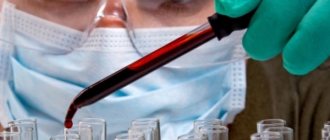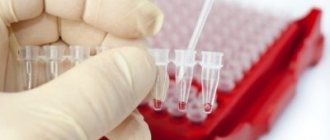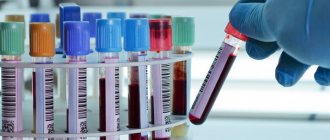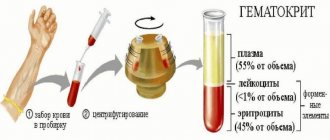Among the large number of different tests that a pregnant woman has to undergo, determining the level of ALT in the blood is important. As a rule, it is measured simultaneously with an enzyme such as AST, both of which are endogenous. Their synthesis occurs inside the cell, and only a certain amount of these enzymes penetrates into the blood. According to medical practice, an increase in their concentration does not pose a threat to either the pregnant woman or the child. However, it is necessary to monitor their levels, and if ALT is elevated during pregnancy, then it is necessary to take a blood test every two weeks.
What does the term ALT mean?
When trying to decipher test results, many are faced with letter abbreviations, and the question often arises: what is ALT? As is known, this enzyme (alanine aminotransferase) serves as the main source of energy necessary to maintain the activity of the whole organism. It is difficult to talk about him in the singular, since together with him, AST takes an active part in the work of the bodies. These components are involved in the synthesis of amino acids such as alanine, which then becomes glucose.
ALT is involved in the functioning of not only the liver, but also the kidneys and heart. To obtain a reliable picture of the health status, the indicators of both enzymes (AST and ALT) are taken into account. They are like indicators that signal a problem. In addition, it may be necessary to assess the level of bilirubin, cholesterol, LDH, and alkaline phosphatase. This will allow us to establish a more accurate picture of the disease. In practice, the increase in liver enzyme levels occurs in the second or third trimester of pregnancy.
If any organ is damaged, the levels of these enzymes increase several times. And then they talk about increased ALT during pregnancy. This does not always immediately indicate an obvious problem or developing pathology. To monitor your health, a follow-up test is usually performed after taking medications. Only a specialist can prescribe them.
Biological role of AST and ALT
Alanine aminotransferase (ALT) and aspartate aminotransferase (AST) are enzymes produced in almost all cells of the human body. The maximum concentration is determined in the following organs:
- liver;
- cardiac muscle - myocardium;
- skeletal muscles;
- kidneys;
- nerve tissue.
Aminotransferases are detected in smaller quantities in the tissue of the lungs, spleen and pancreas.
ALT and AST are catalysts for certain biochemical reactions. They ensure the transfer of amino groups and participate in the formation of vital organic acids.
Normally, ALT and AST are located inside cells. In a healthy person, their concentration in the blood is low. The release of enzymes occurs during cell necrosis. ALT and AST leave the destroyed tissues and enter the bloodstream. Enzymes do not have organ specificity, and their concentration does not always correspond to the severity of the disease.
Aspartate aminotransferase
Aspartate aminotransferase is a marker of damage to the heart muscle. In the myocardium, its activity is 10 thousand times higher than in the blood serum of a healthy person. An increase in AST during myocardial infarction is one of the early markers of the disease. And although its specificity is low, determination of the AST level is used in the diagnosis of cardiovascular pathology.
In liver diseases, AST is considered a less specific enzyme. Its level is growing, but gastroenterologists focus on a different indicator - ALT.
Alanine aminotransferase
Alanine aminotransferase is a specific marker of liver disease. With hepatitis of various origins, the concentration of ALT increases. The enzyme level is usually proportional to the severity of the disease.
In case of liver pathology, ALT and AST are simultaneously determined, but the first enzyme is considered a more accurate marker. The AST assessment is of a supportive nature.
During myocardial infarction, ALT levels do not rise as quickly as AST. With uncomplicated necrosis of the heart muscle, the concentration of alanine aminotransferase may remain within normal limits.
Risk factors that lead to deviations from norms
It happens that a pregnant woman is prescribed certain medications, the use of which leaves behind specific enzymes in the blood cells. They can also cause an increase in ALT during pregnancy. Or this may be a consequence of the introduction of a catheter, which violates the integrity of the skin, and particles of the active substance of the drug remain in the blood.
Toxic components can easily cause damage and death of liver cells. There is a certain list of drugs that have a detrimental effect on the organ:
- hormonal drugs prescribed to maintain pregnancy;
- antibiotics, including those allowed during pregnancy;
- antifungal, antiepileptic, anticonvulsant;
- diuretics;
- non-steroidal dosage forms that have an anti-inflammatory effect.
The growing fetus puts pressure on the internal organs, which leads to disruption of the liver. Usually at the end of the second - at the beginning of the third trimester, due to compression of the gallbladder, bile stagnation occurs. Disruption of its natural outflow can also provoke an increase in ALT in the blood. If a pregnant woman suffers from diabetes, then while carrying a baby, her medications are replaced with insulin.
If a woman’s well-being does not change, but there is a deviation from the norm in the indicators of this enzyme, then weekly monitoring is necessary. However, when the opposite phenomenon is observed and the woman’s condition is close to critical, emergency delivery by cesarean section may be required.
Side effects of deviation from norms
Many are frightened by the serious complications that can result from leaving the problem unattended and, naturally, you should not let any deviations from the norm during pregnancy take their course. Since the main organ that produces alanine is the liver, it is most likely that it has the prerequisites for the disease, which is what an increase in ALT means. This indicates the need to additionally monitor its work, since the growing load can lead to complications during pregnancy.
Among the obvious diseases that occur when ALT levels increase: cholestasis of pregnancy, preeclampsia, fatty liver in acute form. If AST is measured simultaneously with this enzyme, signs of heart failure can be determined. In the presence of pathologies or chronic diseases, the indicators will be increased. However, it is worth making a reservation that the cause of the increase in ALT may be previously suffered hepatitis, or it is currently developing.
The side effect of an increase in liver enzyme indicates the need to pay special attention to your diet and lifestyle. For many, giving up bad habits is stressful. It is advisable to get rid of them while planning pregnancy or in the first trimester. In this case, the body will have time to restore vital functions.
A lack of vitamin B6 also causes an increase in ALT during pregnancy. It is worth mentioning two unpleasant diagnoses that can be established in case of deviation from the norm: hepatitis and cirrhosis. If titers of hepatitis A, B, C are tolerated with almost no obvious signs, then E is considered one of the most dangerous.
Indications for assessing enzyme levels during pregnancy
The determination of AST and ALT refers to liver function tests (LFTs). This examination is included in the biochemical blood test. In practice, aminotransferases are almost always determined together with alkaline phosphatase (ALP). Taken together, these indicators make it possible to identify some pregnancy complications.
A biochemical blood test (including assessment of AST and ALT) is prescribed to all women twice during pregnancy:
- at the first visit to the doctor;
- at 30 weeks.
A blood test is carried out regardless of the patient’s complaints and condition and is indicated even against the background of complete health. Determination of liver enzymes is a screening test and allows you to identify hidden pathology.
According to indications, aminotransferases are determined at any stage of pregnancy. The following conditions may be the reason for examination:
- Suspicion of liver disease. Analysis for ALT and AST is prescribed when viral or toxic hepatitis, cholecystitis, etc. are detected. Assessment of enzyme levels is also indicated in the presence of specific complaints indicating pathology of the liver and biliary tract: pain in the right hypochondrium, nausea and vomiting, itching, jaundice.
- Suspicion of myocardial infarction. The reason for the examination is the appearance of complaints (severe pain in the chest, spreading to the left arm, shoulder, under the shoulder blade) and characteristic changes on the ECG.
- Monitoring the patient's condition with liver and heart pathologies.
- Suspicion of skeletal muscle diseases.
- Diagnosis of complications of gestosis. An increase in aminotransferases is observed in preeclampsia, cholestasis of pregnancy and acute fatty liver degeneration.
Reasons for ordering the study
There are many terms in medicine, and it is not always immediately clear what ALT is and why its level needs to be monitored. In addition to the mandatory procedure for taking tests during pregnancy, as a result of the patient’s complaints or according to screening data, the doctor may suspect the presence of one or another abnormality. Despite the fact that most of the reasons for prescribing an extended blood test are common to many pregnant women, there are a number of symptoms that should alert you:
- pain symptoms in the chest area;
- dizziness, feeling of bitterness in the mouth;
- jaundice, increased levels of bilirubin in the blood, edema;
- decreased appetite, frequent belching;
- increased blood pressure, protein in the urine;
- vomiting and nausea in the last trimester;
- abdominal discomfort, fatigue.
We should not hush up the presence of these problems by attributing them to a special situation. They can become prerequisites for the development of a serious disease. Since not everyone knows what this means - an increase in ALT, it is necessary to obtain clarification from a competent specialist. In short, this enzyme is contained in several organs: skeletal muscles, heart, liver, kidneys.
How to prepare for analysis
Any medical procedures that a pregnant woman needs to undergo require preparation. The case of tests to determine the quality of metabolic processes is no exception. One of the most accessible ways to detect an increase in ALT during pregnancy is to donate blood for a biochemical analysis. Even at an early stage, you can get information about how the body reacts and behaves during pregnancy, whether the internal organs can cope with the increased load.
On the eve of the test, it is necessary to exclude from the diet:
- carbonated drinks and coffee;
- sweet, overly salty, fatty or spicy foods.
It is advisable to prepare porridge or vegetable salad for dinner. They are easy to digest and do not burden the stomach.
Standard indicators and reasons for differences
During pregnancy, the norm is ast up to 31-33 U/ml, alt up to 31 U/l. If your asthma is elevated, in addition to the above pregnancy complications, it can be caused by:
- closed heart injuries;
- autoimmune infections;
- toxic liver damage from medications;
- purulent septic diseases of internal organs;
- cholestasis;
- hepatic blood flow disorders;
- malignant tumors and metastases.
The process of taking biomaterial for research and deciphering the results
Before you come to a medical facility for testing, you need to prepare. The day before, you should exclude dairy products and plant foods from your diet, including legumes, eggs, and sausages. On the day of delivery, you should refrain from eating so that the results are reliable.
The procedure for collecting blood occurs by taking it from a vein, so we can say that it is not painful. In order to eliminate the risk of hematoma formation, the injection site must be covered with a plaster or bandaged. The results are prepared almost immediately, but you can receive them the next day (if we are talking about a public clinic).
It happens that the standards differ in different clinics, so you should judge the results only after consulting a doctor. An increase in ALT by 2 times during pregnancy is considered uncritical, but if the numbers are increased by 5 times or more, then this is a reason for additional research (for example, ultrasound) and consultation with a specialist. In medical practice, a value has been established that clearly indicates the presence of pancreatitis or hepatitis; the deviation from the norm is 20 times higher.
Diseases that accompany increased ALT
Only a qualified doctor can answer the question: “If ALT is elevated during pregnancy, what should you do?” Initially, you need to understand that you cannot do this with medications alone. This deviation is not typical for pregnancy. The norm indicators are influenced by many factors. Readings exceeding 32 IU/l are considered alarming.
If a discrepancy in ALT levels increases, it is important to determine the causes and only then select a treatment regimen. The main signs of diseases that can show an increase in the level of the enzyme in the blood:
- Toxic hepatitis: can develop not only as a result of alcohol and tobacco abuse, but also from working in hazardous industries or prolonged use of medications.
- Viral hepatitis: one of the most complex, transmitted by contact or through blood. It is insidious in that it may not show obvious signs of the disease for a long time. Hepatitis C is considered the most complex form.
- Liver cirrhosis refers to the most advanced form of the disease, when irreversible consequences have started in the body. Dead cells are no longer capable of recovery, and the prognosis in this case is not comforting.
However, it is always necessary to sensibly evaluate test results. Not a single case is taken into account, but to ensure the accuracy of the data obtained, the analysis is repeated. The duration of pregnancy is also of great importance. The duration of treatment is determined by the return to normal ALT in a pregnant woman.
Prevention measures
As you know, it is much easier to avoid any disease than to treat it.
To avoid an increase in ALT and AST levels in the blood, it is worth following certain preventive measures; sometimes you need to completely reconsider your lifestyle.
To restore the functioning of the liver and the entire body as a whole, you need to follow the following rules:
- It is necessary to completely stop drinking alcohol and smoking.
- It is important to monitor your diet, eliminating harmful foods and filling your diet with healthy ingredients.
- Every morning it is advisable to have breakfast not with coffee and scrambled eggs, but with jelly or tea.
- It is very important to avoid unnecessary stress.
- At least two hours a day should be spent in the fresh air. The time of day doesn’t matter here – you can and should walk during the day or in the evening.
- You need to create a daily routine and carefully follow it.
- Self-medication with over-the-counter medications should be avoided.
- It is important to have a regular sexual partner, since sexual promiscuity can lead to an increase in ALT and AST levels.
Even with a relatively healthy lifestyle, about once every six months after 35 years you need to donate blood to check your ALT and AST levels. This will help to avoid serious problems with the body in the future, which will require long-term and expensive treatment.
How to help a pregnant woman
The ALT level in women in the first trimester of pregnancy is considered a good indicator. This is due to the fact that not only hormonal changes occur, but also an active exchange of blood cells between the mother and the growing fetus. Only a qualified specialist can give a specific assessment of a woman’s health status.
If the reason for the increase in alanine aminotransferase levels is a lack of vitamin B, then restorative therapy is prescribed, which includes vitamins B and C, hepatoprotectors. It is also worth noting that normalizing the diet is one of the main ways to normalize ALT levels in the blood. It is believed that eating brown rice, fruits and vegetables, green or any herbal tea has a positive effect on restoring liver function.
The goal of treatment is not to reduce indicators, but to eliminate the inflammatory process, which leads to an increase in ALT during pregnancy. Only in this case can we talk about the possible restoration of the organ and health in general.
Value is normal
Concentrations of ALT and AST can change throughout life, even if no pathological process occurs in the liver. This is due to the increased load on the organ when exposed to certain factors.
During pregnancy, the level of enzymes can also change, since the liver during pregnancy detoxifies the body not only of the mother, but also of the fetus.
The AST norm in the first trimester of pregnancy is less than 31 U/l. In subsequent trimesters the indicator is 30 units.
The ALT norm in the first trimester is no more than 32 U/l. In the second and third trimester 0 is less than 31.
These indicators are averages and can vary significantly between laboratories. The equipment of a particular diagnostic department may differ significantly and the standard of tests will be changed. Therefore, it is important to pay attention to the reference values on the analysis form.
If AST and ALT are elevated during pregnancy, you should not panic. During gestation, transient enzyme surges are possible due to the influence of the fetus on the liver of the expectant mother.
For a more accurate diagnosis, it is recommended to repeat the analysis after a certain time.
Available treatment in the third trimester
If ALT is increased during pregnancy in the 3rd trimester, then most likely the woman is accompanied by headaches, dizziness, nausea, and pain in the temporal region. These symptoms are characteristic of late gestosis and can cause quite significant discomfort. The load on the liver can be caused by the presence of diseases such as pancreatitis, heart disease, thyroid disease, genitourinary system, untreated infectious and inflammatory processes in the body. Definitely, this should not be ignored.
Treatment methods for elevated ALT in the blood during pregnancy come down to helping the liver perform its functions and recover. Therefore, any toxic drugs are excluded. Moreover, most of them are contraindicated for women during pregnancy. Doctors choose drugs that are made on a plant basis. These include: “Essentiale N”, “Tykveol”, “Gelabene”, “Legalon”. They protect the cells of the organ and restore it, and also perform functions that the liver cannot currently cope with. For example, this could be a secretory function, participation in metabolic processes, getting rid of toxic products.
Features of treatment
If the levels of ast and alt are too high, this indicates the destruction of the cells of a certain organ, so you need to seriously start treating it. It is impossible to lower the indicators with medication; this can only be done by a correct lifestyle and timely treatment of anxiety symptoms. Remember that high rates do not exist in a normal state of health, and asthma is not the cause of the disease, but its consequence.
The patient’s task is to timely identify symptoms and consult a doctor, and the doctor’s task is to make the correct diagnosis and therapy, which does not harm the mother and child. It should be noted that the treatment method is individual, since the age of the mother, the duration of pregnancy and, of course, the reasons for the increase in enzymes in the blood are taken into account.
Jumps in protein enzymes are not a reason to allow pregnancy by cesarean section . Most women give birth naturally. The exception will be acute hepatitis and cirrhosis, which can cause liver rupture in the process of pushing, as well as heart failure, which can cause death for both mother and child.
During pregnancy, not only hormonal changes occur, the whole body experiences stress, so it is necessary to take routine examinations with a doctor very seriously. During pregnancy, the liver and heart are forced to work twice as hard to maintain the viability of the two organisms. At this time, it is necessary to provide them with care and attention by adjusting their diet, as well as protecting themselves from stress.
Pregnancy is a period that a woman should remember with positive moments, and not with endless interruptions in the doctor’s office. That is why, plan your pregnancy in advance, and you will prevent unpleasant surprises during pregnancy, such as hepatitis, kidney failure and heart muscle dysfunction. All these diseases are easily identified using instrumental diagnostic methods and can be treated. Follow all your doctor's recommendations during pregnancy and you will be able to give birth to a healthy baby.
Among the large number of different tests that a pregnant woman has to undergo, determining the level of ALT in the blood is important. As a rule, it is measured simultaneously with an enzyme such as AST, both of which are endogenous. Their synthesis occurs inside the cell, and only a certain amount of these enzymes penetrates into the blood. According to medical practice, an increase in their concentration does not pose a threat to either the pregnant woman or the child. However, it is necessary to monitor their levels, and if ALT is elevated during pregnancy, then it is necessary to take a blood test every two weeks.
Special diet
If ALT is elevated during pregnancy, diet is one of the key points for restoring health. It is quite affordable and simple; for example, it is recommended to replace the usual tea with herbal tea. It is worth paying attention to the composition and giving preference to dandelion, astragalus, and thistle. It is recommended to add turmeric and garlic as seasonings. These simple components help launch natural processes in the body that have antitumor and anti-inflammatory effects.
Among the dietary supplements, it is allowed to include antioxidants in the diet, which help the body rejuvenate cells and strengthen them. Nuts and avocados, mangoes and citrus fruits are quite affordable. Which also belong to the group of antioxidants. It is advisable to consume at least 50 g of dietary fiber per day, which serves as a natural “cleanser” of “bad” cholesterol.
The key is not only to eat healthy food, but also clean water. It is advisable to adhere to the daily norm and replace coffee and tea with it. If a woman does not take any vitamins during pregnancy, this may cause an increase in ALT during pregnancy. Why is this issue receiving so much attention? Because during the period when a woman is carrying a child, the body undergoes great changes and experiences increased stress. It is important not to miss the moment when you can help and restore the working capacity of important organs, in particular the liver.











